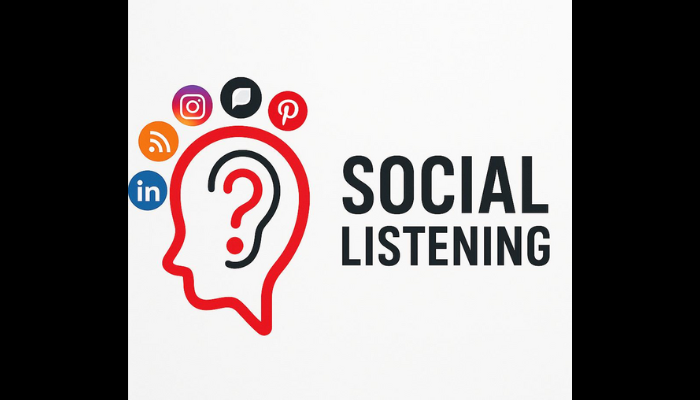Social Listening Friday 24 October 2025
1. Contentions over selective arrests and detention of Free Nnamdi Kanu protesters
Social media denizens have put the Nigerian Police Force on the defensive for arresting Nnamdi Kanu’s lawyer and brother over the 20 October 2025 Free Nnamdi Kanu demonstration but leaving out the organiser Omoyele Sowore.
The government claims it did not arrest the main organizer of the #FreeNnamdiKanu protest, Omoyele Sowore, because he was not among the individuals detained for violating a specific court order that restricted the protest locations. Police arrested other key figures for entering prohibited zones.
Arrested persons are Emmanuel Kanu (Nnamdi Kanu’s brother), Aloy Ejimakor (Kanu’s lawyer and six others. They were held for “contravening a valid court order”. The court injunction banned protests near sensitive areas (Aso Rock Villa, National Assembly.
Spokespersons for the detained deny that they have been demonstrating in the banned areas. They were near the Transcorp Hilton.
The police stated that the arrests were made because the individuals entered areas explicitly restricted by a court order, not for organising or participating in the protest itself. The police spokesperson, Benjamin Hundeyin, expressly said, “dem insist on making way to di restricted areas”.
Sowore publicly vowed to proceed with the protest despite the court order, claiming his team had not been formally served and stating that “notin go stop dis mass movement”. Reports indicate he was present at the protest and was seen running from tear gas, but he managed to avoid being among those arrested for breaching the restricted zones.
2. 20 October, five years after ENDSARS
The Free Nnamdi Kanu protests took place five years after the Nigerian Police violently suppressed the massive End-SARS protests.
The main aim of the 2020 EndSARS protest was to disband the Special Anti-Robbery Squad (SARS) and end police brutality. It was partially successful. The SARS unit was officially dissolved on October 11, 2020. The movement concluded after a violent crackdown on Oct 20, 2020 (the Lekki Massacre), with victims still seeking justice five years later.
The 20 October 2025 event aimed to secure the release of IPOB leader Nnamdi Kanu, citing the government’s disregard for court orders for his release. The police responded with tear gas and some arrests.
EndSARS was a decentralized, nationwide youth-led movement that saw rare national unity across ethnic and religious lines. The Free Nnamdi Kanu movement was backed by Igbo leaders, activists like Omoyele Sowore, and some opposition politicians, but also faces opposition from northern groups.
Supporters frame the issue as one of “selective justice,” pointing out that the government has negotiated with and granted amnesty to bandits in the north while keeping Kanu in detention despite court rulings.
Read also: Nnamdi Kanu sacks legal team, opts to defend himself in court
3. No to commemorative flags for End-SARS?
“Nigeria is impressive, isn’t it? The Nigerian Government, which pardons murderers, gun-runners & cocaine importers, negotiates with bandits & hands AK-47 to #RepentantTerrorists, will not allow a woman to carry flowers? How cowardly does it get….?!”
Prof. Chidi Odinkalu

4. Natasha Akpoti-Uduaghan versus Akpabio again
The Nigerian Senate was embroiled in heated controversy in October 2025 over proposed amendments to the Criminal Code specifically targeting abortion offences, sparking intense debate, procedural drama, and significant public attention.
During deliberations on the Criminal Code Amendment Bill 2025, the Senate considered provisions to stiffen penalties for those aiding or procuring abortions, raising sentences from three to ten years without an option of fine. The debate quickly fractured as senators struggled to reach a consensus on what exactly constitutes an “unlawful abortion.” Some, including Senator Saliu Mustapha, argued that medical and religious exceptions may be justified, while others cautioned that the bill could endanger doctors’ ability to save lives in critical situations.
Natasha Akpoti-Uduaghan’s Intervention
Senator Natasha Akpoti-Uduaghan, representing Kogi Central, attempted to intervene, emphasising her position as a woman and the direct impact of abortion legislation on women’s rights and health. However, her efforts to comment after the matter had been “stepped down” for committee review were ruled out of order by Senate President Godswill Akpabio. This move, upheld by Senator Adams Oshiomhole citing parliamentary rules, provoked disappointment and claims of exclusion from Akpoti-Uduaghan, who lamented being silenced in a debate relating directly to women.
The incident sparked widespread debate in the media and online, with many Nigerians and advocates voicing concern over both the content of the bill and the way debates on issues affecting women’s health were managed. Critics pointed out the ongoing issue of unsafe abortions caused by restrictive laws, emphasising that legislative ambiguity and lack of consultation risked worsening maternal health outcomes. Supporters of better reproductive health policies called for clearer, evidence-based approaches and increased inclusion of women’s voices in legislative processes.
The Senate suspended further consideration of the bill, referring the contentious clauses to its Judiciary Committee for deeper review and broader consultation, with a report due in two weeks. The controversy has become a flashpoint in Nigeria’s ongoing struggle to balance morality, medical ethics, and women’s rights within its legal framework for abortion

